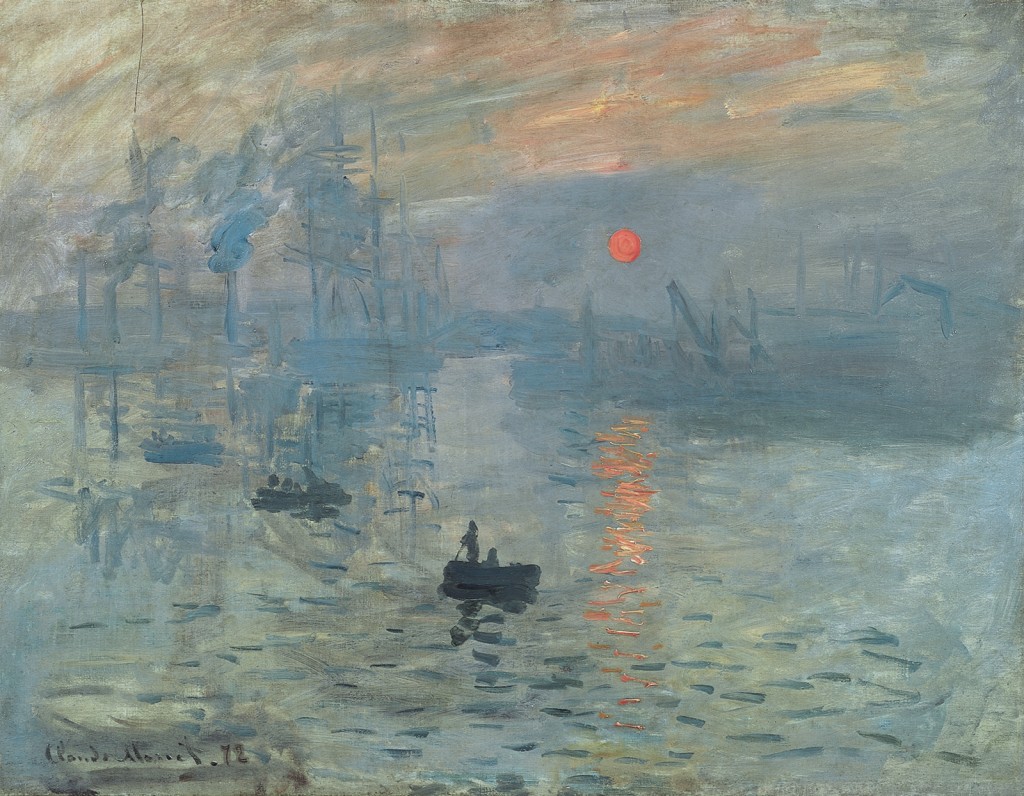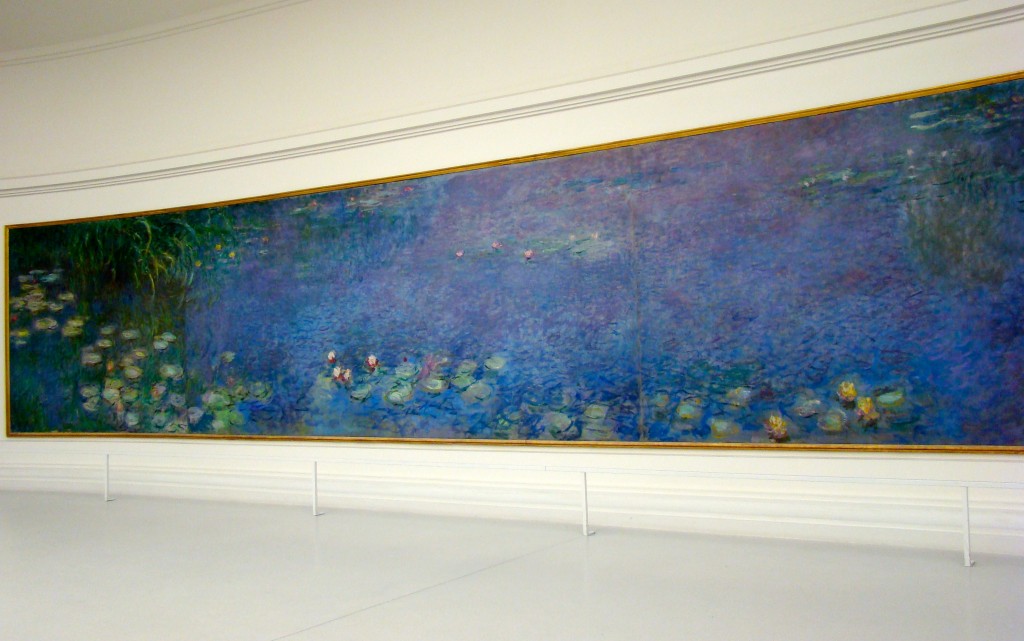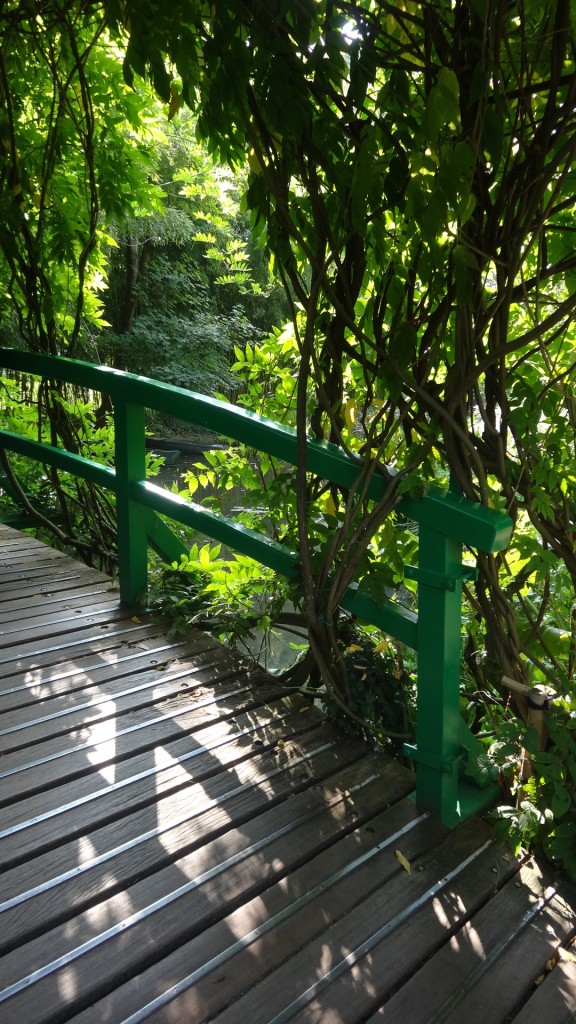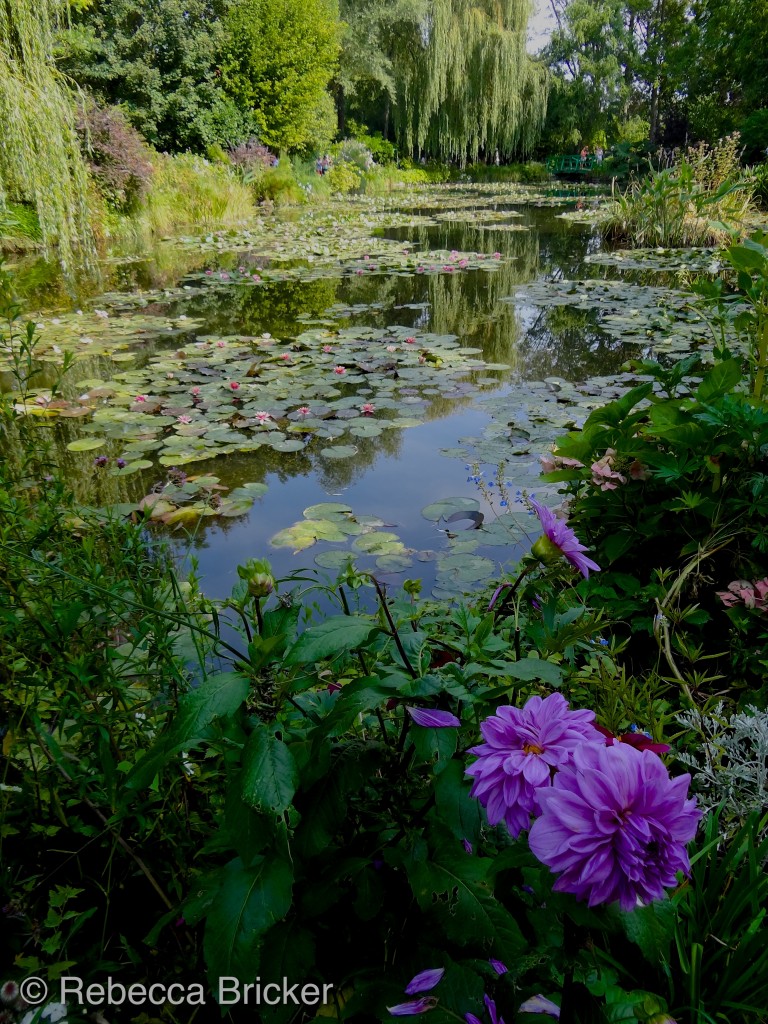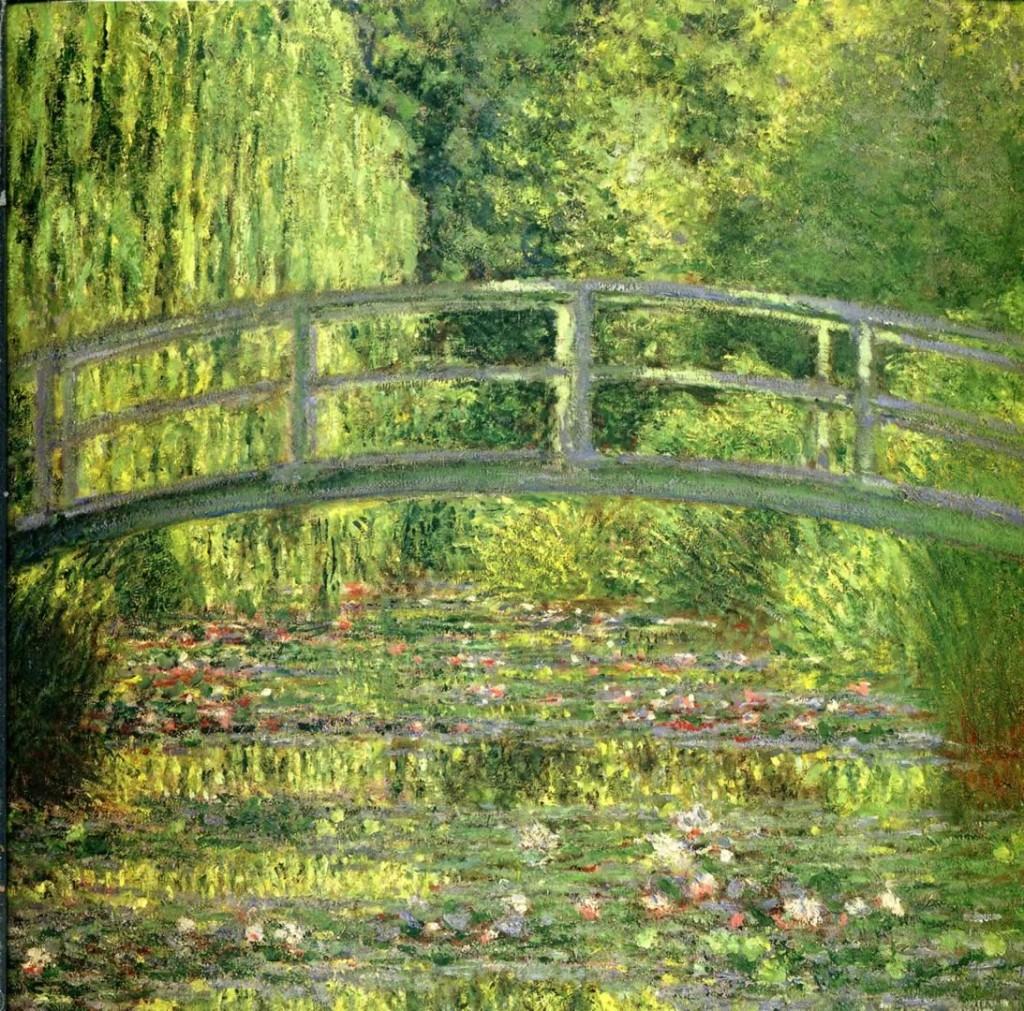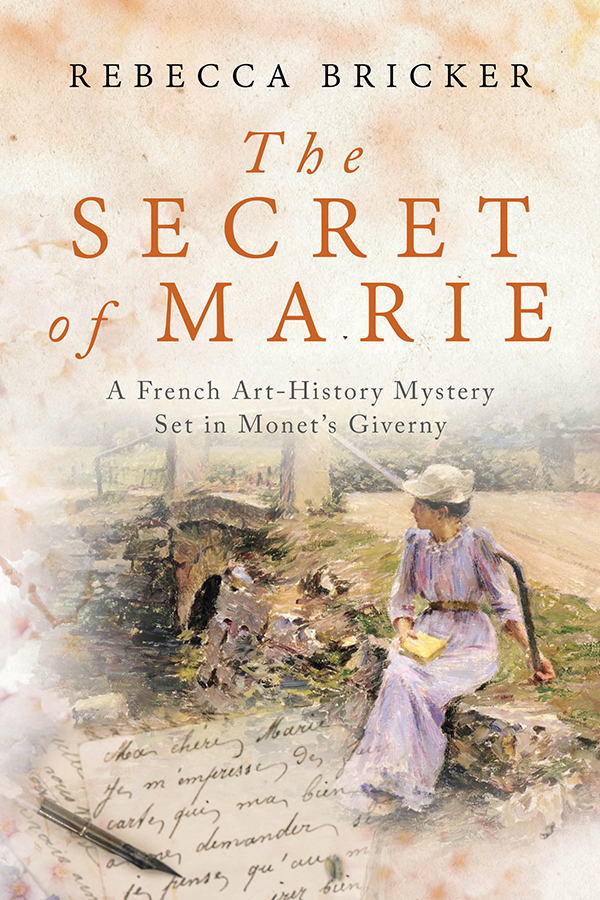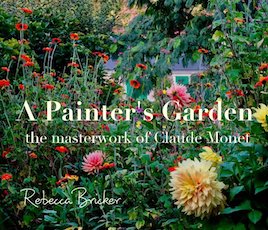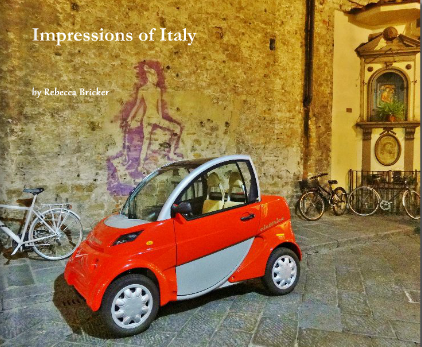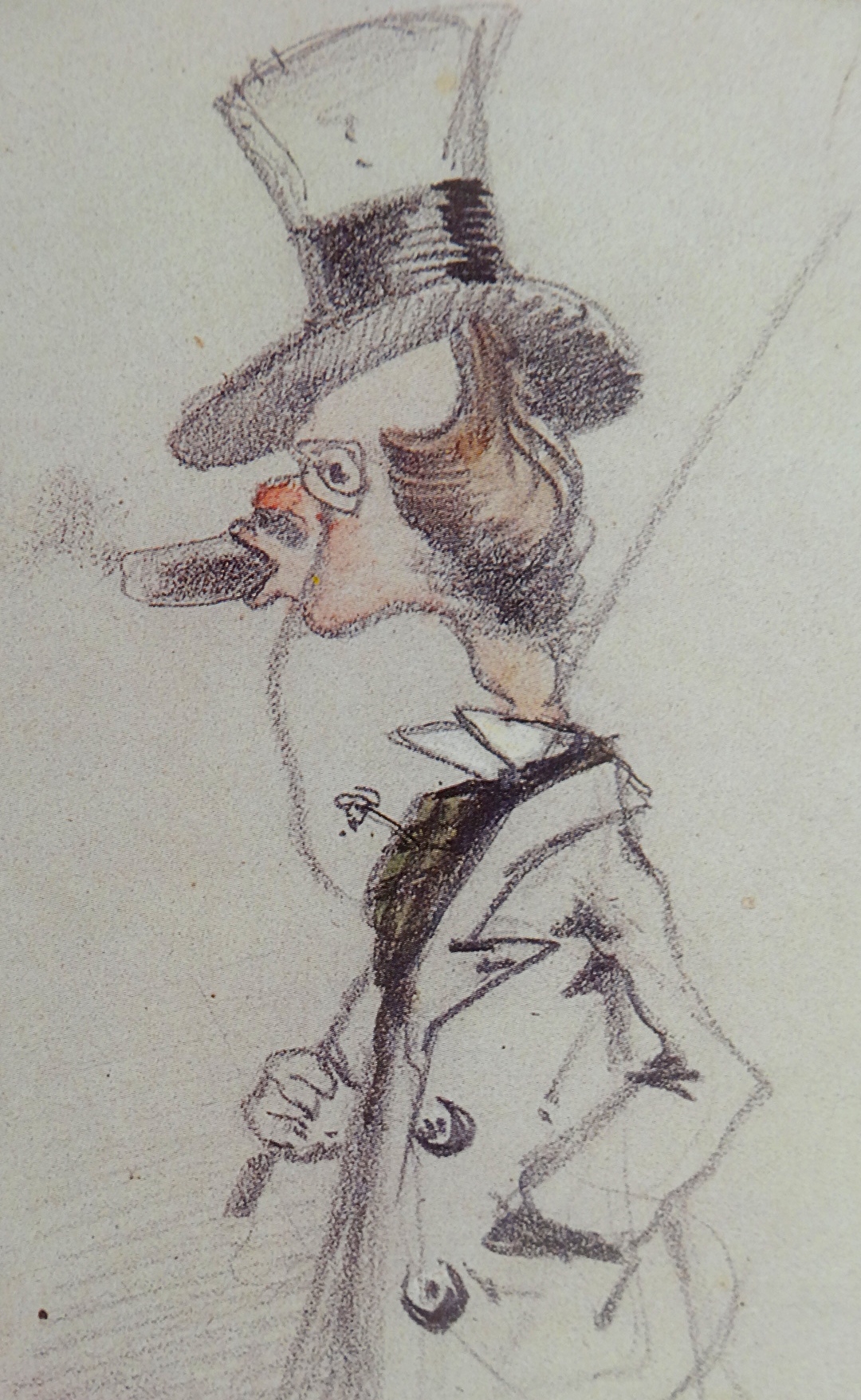 <<< Bet you can’t guess who drew this.
<<< Bet you can’t guess who drew this.
Hint: He was 17 at the time, born in Paris (in 1840). He was a bit rebellious and hated school. As a teenager, he made a little pocket money drawing caricatures that he displayed at a stationery-and-frame shop.
The owner of the shop showed this teenager’s sketches to French artist Eugène Boudin, who took the boy under wing. Boudin showed him how to use oils and pastels and paint landscapes on location – en plein air.
The boy’s name: Claude Monet.
He could have become a cartoonist or followed his father into the grocery business. But Claude Monet had the good fortune, at a young age, of finding a mentor who steered him toward the path he was meant to take.
Monet was 34 when his now-famous painting Impression, Sunrise gave a name to the Impressionist movement – a term coined by an art critic intending to discredit the innovative painting style of a group of renegade artists who were experimenting with the interplay of color and light. Monet, Renoir, Cézanne, Degas, Sisley, Morisot, Pissarro – there were 30 artists, in all, who held an exhibition of their work in 1874 that rocked the art establishment of the day.
I’ve loved Monet’s work since I first discovered his paintings in a college art history class. I was  amazed the first time I saw his enormous water-lily panels, on exhibit in Paris, during my student year abroad in 1974-75. I remember standing as close as I dared, at London’s National Gallery, to view The Beach at Trouville – if you look closely, you can see grains of wind-blown sand imbedded in the paint.
amazed the first time I saw his enormous water-lily panels, on exhibit in Paris, during my student year abroad in 1974-75. I remember standing as close as I dared, at London’s National Gallery, to view The Beach at Trouville – if you look closely, you can see grains of wind-blown sand imbedded in the paint.
Last week, there was a wonderful article in The New York Times about how we fall in love with paintings or photographs, which then become our ‘friends’ and ‘lovers’ for life.
On a trip to Paris two weeks ago, I re-visited my favorite Monets and some of the masterworks of his renegade peers. I know them all so well now that I don’t even need to look at the date or the place. After all, we’ve been friends for 40 years.
I walked into an Impressionist gallery at the Musée d’Orsay and smiled. You’re all so young, I thought. The paintings were from early in their careers. The traditional training was still evident as was the style of the masters and mentors they were emulating. But in each painting, you can see a glimmer of what was to come.
The magnitude of Monet’s work in the last decade of his life (he died in 1926) – as he immortalized the beauty of his beloved lily pond in Giverny – blew me away when I saw the water-lily panels at the renovated Musée de l’Orangerie several years ago.
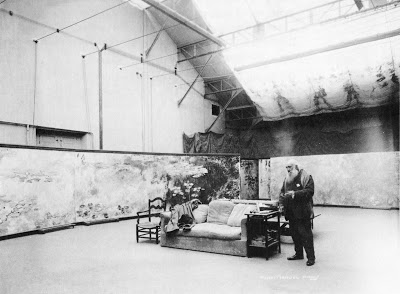 He painted those panels in a specially-built studio at his home in Giverny. That studio is now the Monet-House-and-Garden gift shop, packed with tourists during the seven months of the year that the gardens are open to the public.
He painted those panels in a specially-built studio at his home in Giverny. That studio is now the Monet-House-and-Garden gift shop, packed with tourists during the seven months of the year that the gardens are open to the public.
Last week, I stood in the middle of that gift shop, with a few souvenir seed packets in hand, and looked up at the ceiling designed to allow diffused light into the room. I saw this postcard on a rack nearby – and could feel the presence of Monsieur Monet himself…
I’ll never forget standing on the Japanese bridge at Monet’s lily pond once during a private after-hours tour. The air was heavy with mist as a light rain fell. I was mesmerized by the tiny rippling circles on the water’s surface. An intricate spider’s web, spun on the wisteria vines above me, glistened with silver droplets. The water lilies were smudges of pink and yellow. A weeping willow swayed gently in the breeze. Never in all the years I had gazed at Monet’s paintings of this scene did I imagine I would someday experience its soul-stirring beauty for myself.
Not only has Monet brought great beauty into my life these past 40 years. But he has also taught me a lesson about where life can take us, no matter where we begin.
{ 2 comments }
